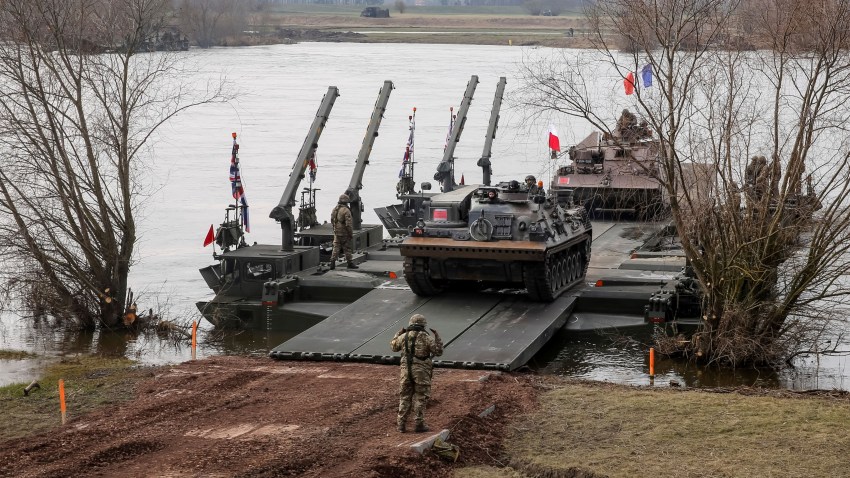Is the European Union on track to become a security provider? On Tuesday, the European Commission proposed a joint defense spending program of 1.5 billion euro, or $1.64 billion. The EU also released a first-ever defense industrial strategy, setting 2030 targets for increased joint weapons purchasing and procurement.
On the same day as these announcements, French President Emmanuel Macron lambasted European states for failing to support Ukraine in its war against Russian aggression. Macron described Europe as being “cut in two by cowardice,” while accusing one part of it of abandoning the other to “totalitarianism.” This follows remarks a few weeks ago at this year’s Munich Security Conference by German Chancellor Olaf Scholz, who declared that “Europeans need to do much more for our security, now and in the future.” Scholz notably added, “Our readiness to do so is considerable."
Such strong words and proposals are all well and good. But will “grandstanding” translate into grand strategy? So far, the record is at best mixed for the individual EU member states. It’s not that they’re doing nothing for Ukraine. But as the above comments from European leaders themselves clearly suggest, they need to do more—especially given concerns about the continued viability of U.S. military aid to Ukraine even if President Joe Biden remains in office after the November presidential election.

